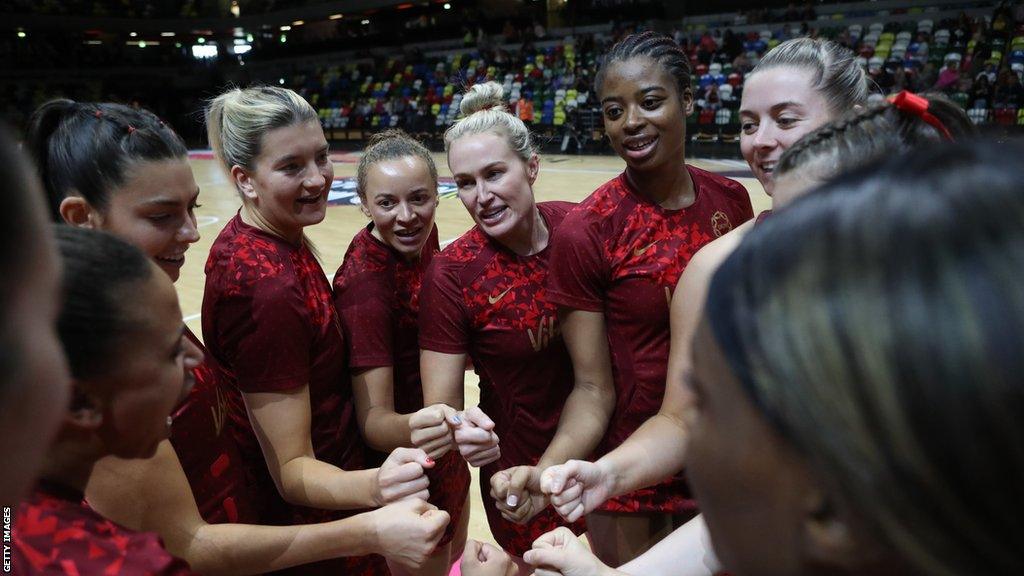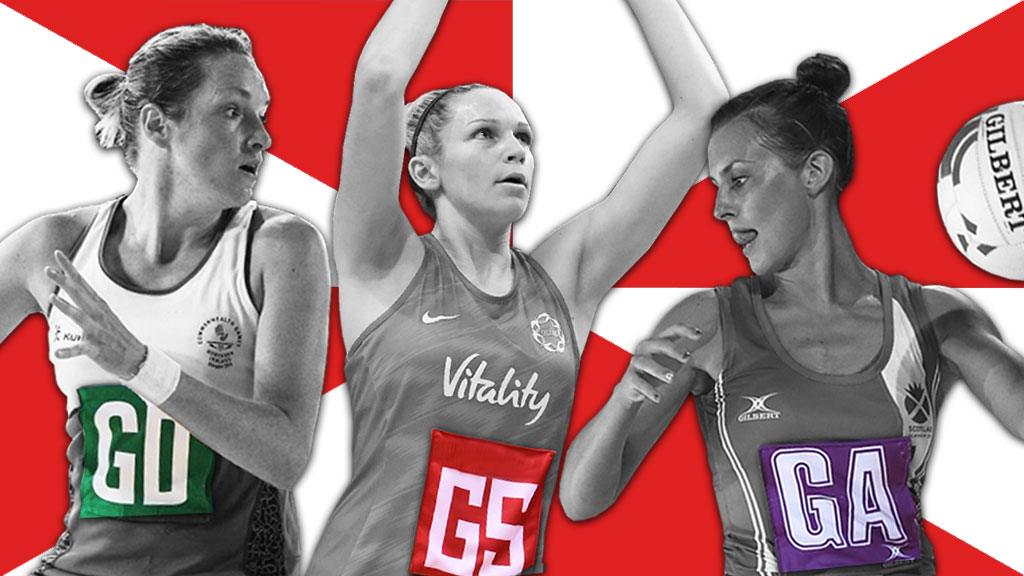England Netball launches NetballHER women's health initiative
- Published

Netball is the second-largest female team sport in England
England Roses defender Fran Williams wants to "normalise" conversation around women's health, as England Netball launches a programme aimed at better educating women and girls at all levels of sport about their bodies across different life stages.
"By having something so present, visual and accessible that promotes all these issues hopefully will normalise and make these conversations more common in our netball communities," said Williams.
In collaboration with The Well HQ, a health and training research group which specialises in women's health, NetballHER intends to drive change and generate conversations around women's health issues such as periods, pregnancy, injury, menopause, bras and kit.
"It's about just taking the taboo off some of this stuff," said England Netball head of development Kelly Gordon.
"Talking about periods, talking about menopause, it's OK to talk about it. We want to support the players from grassroots to elite and support all those players at different stages of their lives."
Netball is the second-largest female team sport in England, after football, with more than 600,000 women and girls playing every week and sessions ranging from Bee Netball for five-year-olds to Walking Netball where women in their 90s attend.
"If we can't do it, there's no hope. We are in a unique position and that's why we're taking a lead on it," said Gordon.
Research by England Netball suggested women's health issues contribute to a significant number of drop-outs, with 41% of teenage girls not playing around puberty and 25% of women leaving netball because of pregnancy and not returning.
A study by Women in Sport in 2022 identified that 64% of girls will have left sport by the time they finish puberty, with fear of feeling judged, body image and periods among the reasons.
According to The Well HQ, external, only 6% of sport science research is dedicated specifically to females and research carried out by England Netball also found that:
48% of teenage girls lack self-belief and don't feel good enough to continue playing
39% of girls do not do sport when they are on their period
27% of women drop out because of injury
38% of netball coaches want to learn more about how to support women and girls more effectively at every stage of life
NetballHER aims to educate netballers through their website, external, where women can access information from doctors and experts.
The initiative will also offer virtual lessons for coaches and support staff, practical support such as period products and leaflets at training sessions, and England Netball have produced female health policies for their own staff.
'Scary to think what is holding people back'
Roses international Williams hopes the programme will "connect the wider netball community" through shared issues around women's health.
"Someone playing local league once a week might be facing the same issues that we're facing at the elite level," she said.
Being part of England's elite pathway from a young age meant Williams was around other girls who wanted to succeed in sport, but she says she has noticed the issues facing young girls through her work in coaching and school appearances.
"I see girls that age and you can tell just from doing a one-hour session with them things that might be holding them back.
"Asking if they can sit out because they have stomach cramps or girls with kit concerns, coming in and not wanting to take their hoodies off because they think they look silly with their arms out.
"When you see some of the figures and research that's being done it's scary to think that that's what is holding people back, and hopefully we can try and unpack why that is happening and bridge some gaps.
"It should never be those reasons that stop someone playing sport."
Roses team-mate Eleanor Cardwell has spoken about issues she had with getting the correct-fitting sports bra, and Williams said that shows there is a gap in education around what the female body needs.
"There's a lot of stuff we're not even aware of ourselves, so we need this to fill in that gap about what it could be that's holding us back."

The dangerous rise of Andrew Tate: Enter the world of the social media personality's multi-level marketing scheme and webcam business
Stealing it was only the beginning...: Glittering drama based on the audacious Brink's-Mat security depot heist

Related topics
- Published10 July 2019
